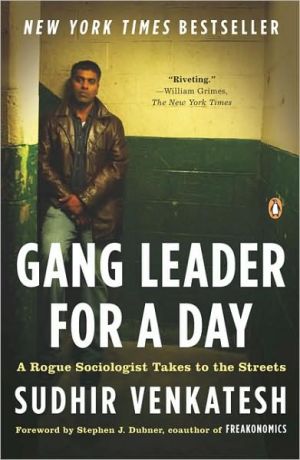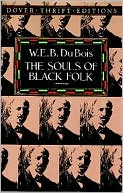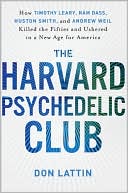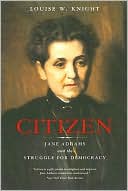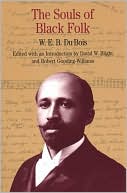Gang Leader for a Day: A Rogue Sociologist Takes to the Streets
First introduced in Freakonomics, here is the full story of Sudhir Venkatesh, the sociology grad student who infiltrated one of Chicago's most notorious gangs\ The story of the young sociologist who studied a Chicago crack-dealing gang from the inside captured the world's attention when it was first described in Freakonomics. Gang Leader for a Day is the fascinating full story of how Sudhir Venkatesh managed to gain entrance into the gang, what he learned, and how his method revolutionized...
Search in google:
First introduced in Freakonomics, here is the full story of Sudhir Venkatesh, the sociology grad student who infiltrated one of Chicago's most notorious gangs The story of the young sociologist who studied a Chicago crack-dealing gang from the inside captured the world's attention when it was first described in Freakonomics. Gang Leader for a Day is the fascinating full story of how Sudhir Venkatesh managed to gain entrée into the gang, what he learned, and how his method revolutionized the academic establishment. When Venkatesh walked into an abandoned building in one of Chicago's most notorious housing projects, he was looking for people to take a multiple-choice survey on urban poverty. A first-year grad student hoping to impress his professors with his boldness, he never imagined that as a result of the assignment he would befriend a gang leader named JT and spend the better part of a decade inside the projects under JT's protection, documenting what he saw there. Over the next seven years, Venkatesh got to know the neighborhood dealers, crackheads, squatters, prostitutes, pimps, activists, cops, organizers, and officials. From his privileged position of unprecedented access, he observed JT and the rest of the gang as they operated their crack-selling business, conducted PR within their community, and rose up or fell within the ranks of the gang's complex organizational structure. In Hollywood-speak, Gang Leader for a Day is The Wire meets Harvard University. It's a brazen, page turning, and fundamentally honest view into the morally ambiguous, highly intricate, often corrupt struggle to survive in what is tantamount to an urban war zone. It is also the story of a complicated friendship between Sudhir and JT-two young and ambitious men a universe apart. The Barnes & Noble Review From the fall of 1989 through the fall of 1998, Sudhir Venkatesh, now a sociologist at Columbia University, hung out -- often for many days in succession -- with a gang called the Black Kings, in the largest and most infamous of Chicago's large and infamous housing projects, the Robert Taylor Homes. Gang Leader for a Day is the third book by Venkatesh to grow out of this decade of immersive observation of life in these (now razed) buildings. The first two were forthrightly academic: American Project: The Rise and fall of a Modern Ghetto took a global and historical look at the projects. Off the Books: The Underground Economy of the Urban Poor examined, with specific details and inside knowledge, the interconnected methods, licit and otherwise, by which the residents of Robert Taylor tried to make a living -- from drug dealing to back-alley car repair to prostitution to selling home-cooked meals. One aspect of his economic findings -- the discovery that many low-level, low-income drug dealers live with their mothers -- also found its way into Steven D. Levitt and Stephen J. Dubner's huge bestseller Freakonomics. The success of that book might have provided part of the impetus for Venkatesh to return to this subject in a more literary way.
Gang Leader for a Day Foreword by Stephen J. Dubner\ Preface\ One: How Does It Feel to be Black and Poor?\ Two: First Days on Federal Street\ Three: Someone to Watch Over Me\ Four: Gang Leader for a Day\ Five: Ms. Bailey's Neighborhood\ Six: The Hustler and the Hustled\ Seven: Black and Blue\ Eight: The Stay-Together Gang\ Author's Note Acknowledgments Index
\ William GrimesWithout question, Mr. Venkatesh is dazzled by J. T. and seduced by the gang life. He maintains enough distance, however, to appraise the information he is given and to build up, through careful observation, a detailed picture of life at the project. He writes what might be called tabloid sociology, but it rests on a solid foundation of data…\ —The New York Times\ \ \ \ \ Publishers WeeklyIn the late 1980s and 1990s, "rogue sociologist" Venkatesh infiltrated the world of tenant and gang life in Chicago's Robert Taylor Home projects. He found a complex system of compromises and subsistence that makes life (barely) manageable. Venkatesh excellently illustrates the resourcefulness of impoverished communities in contrast to a society that has virtually abandoned them. He also reveals the symbiotic relationship between the community and the gangs that helps sustain each. Reg Rogers reads with great emphasis and rhythm. His lilting, cadence and vocal characterization of tenants is enjoyable. Rogers's first-person narrative establishes a deep intimacy with the reader. Venkatesh reads the final chapter, but he lacks the subtly and nuance that Rogers projects throughout his reading. The insubstantial author interview on the last disc mostly covers material already discussed in the book. Simultaneous release with the Penguin Press hardcover (Reviews, Nov. 5, 2007). (Feb.)\ Copyright © Reed Business Information, a division of Reed Elsevier Inc. All rights reserved.\ \ \ School Library JournalAdult/High School\ As a young graduate student fresh off an extended stint following the Grateful Dead, Venkatesh began studying urban poverty. With a combination of an ethnographer's curiosity about another culture and some massive naïveté, he gathered firsthand knowledge of the intricacies of Chicago's Robert Taylor projects. Early on, he met a megalomaniac gang leader known here as J.T., who became his mentor. Venkatesh observed and learned how the crack game works, and how many have their fingers in the pie and need life to remain the way it is. He observed violence, corruption, near homelessness, good cops, bad cops, and a lot of neglect and politics-as-usual. He made errors in judgment-it took a long time for his street smarts to catch up to his book smarts-but he tells the story in such a way as to allow readers to figure out his missteps as he did. Finally, as the projects began to come down, Venkatesh was able to demonstrate how something that seems positive is not actually good for everyone. The first line in his preface, "I woke up at about 7:30 a.m. in a crack den," reflects the prurient side of his studies, the first chapter title, "How does it feel to be black and poor?" reflects the theoretical side, and both work together in this well-rounded portrayal.-Jamie Watson, Harford County Public Library, MD\ \ \ \ \ \ Kirkus ReviewsAn insider's view of gang culture and warfare. First described in Steven D. Levitt and Stephen J. Dubner's "rogue" guide, Freakonomics (2005), Venkatesh's brazen foray into Chicago's organized street life is chronicled here in its entirety. It began during his first year of graduate sociology work at the University of Chicago and took seven years to complete. The author's colleagues asserted that quantitative and statistical data would suffice to completely deconstruct the behavioral patterns of those living in the poor, black neighborhoods surrounding the university. Instead, he chose an ethnographic approach, personally immersing himself in his vigorous research. In Washington Park, a beautiful (by day) area that the university consistently discouraged its students from frequenting, Venkatesh spoke with two sage black seniors who dispensed fatalistic views on race relations. The ballsy investigator wandered through the Lake Park high-rise housing project located just a few miles from campus, hoping to interview families about being "black and poor." He was briskly escorted from an "abandoned" building; knives and guns were quickly drawn. With J.T., a gold-toothed, tough-talking former college student and current gang member, the author developed "a strange kind of intimacy." Venkatesh's guts and persistence elicited J.T.'s substantial history lesson on black Chicago, its underground economy, the crack cocaine trade and the intricate echelons of gang hierarchy. J.T. soon moved in with his proud, outspoken mother at the crack-infested Robert Taylor Homes housing project, hoping to increase his drug-selling revenue. Venkatesh dutifully followed and scrutinized prostitutes, hustlers andgang violence. Still striving to learn how gang activity and allegiances dictate behavior, he infiltrated the Black Kings crack gang. That was dangerous, complicated and legally risky; he could have been jailed for contempt for failing to share his notes with the police. Venkatesh writes of his harrowing, exhilarating fieldwork with the great pride and insatiable curiosity of a seasoned news reporter. A dark, revealing expose.\ \ \ \ \ The Barnes & Noble ReviewFrom the fall of 1989 through the fall of 1998, Sudhir Venkatesh, now a sociologist at Columbia University, hung out -- often for many days in succession -- with a gang called the Black Kings, in the largest and most infamous of Chicago's large and infamous housing projects, the Robert Taylor Homes. Gang Leader for a Day is the third book by Venkatesh to grow out of this decade of immersive observation of life in these (now razed) buildings. The first two were forthrightly academic: American Project: The Rise and fall of a Modern Ghetto took a global and historical look at the projects. Off the Books: The Underground Economy of the Urban Poor examined, with specific details and inside knowledge, the interconnected methods, licit and otherwise, by which the residents of Robert Taylor tried to make a living -- from drug dealing to back-alley car repair to prostitution to selling home-cooked meals. One aspect of his economic findings -- the discovery that many low-level, low-income drug dealers live with their mothers -- also found its way into Steven D. Levitt and Stephen J. Dubner's huge bestseller Freakonomics. The success of that book might have provided part of the impetus for Venkatesh to return to this subject in a more literary way. \ In any case, Gang Leader for a Day offers a personal, memoiristic account of the author's experience with the Black Kings. The result is a book that alternates compelling drama with the tedium that no doubt characterizes a lot of gang life. Venkatesh witnesses "mouth shots" -- punches to the face inflicted as punishment on gang members who violate the rules of street-corner crack selling. He meets the sadistic "Officer Jerry," a local cop on the take, as well as the more upright "Officer Reggie," who steers clear of, but rationalizes, police corruption. He learns the gang's structure and fiscal policies, which resemble cargo-cult shadows of corporate governance. Meanwhile, other residents of the community -- like Ms. Bailey, the powerful tenant leader who has her own hydra-headed scams going -- befriend Ventakesh and open up about their economic and social struggles.\ Inevitably, the author becomes involved in the action he is there to observe. The book's title derives from Venkatesh's short-lived effort to run the Black Kings for a day -- an incident that unfortunately peters out, narratively speaking. Venkatesh is asked to make decisions (some countermanded) about a clean-up detail and a minor dispute between gang members. The provocative notion of "Gang Leader for a Day" quickly dwindles into insignificance, with the episode ultimately demonstrating the banality and quotidian quality of the drug trade (let's admit it: not so different in that respect from office life). Far more dramatic is the author's involvement in helping to save the life of a gang member grievously wounded in a drive-by shooting carried out by rival gangs.\ The book's true center of gravity is found in the author's long relationship with "J.T.", the leader of the Black Kings gang. Proceeding from Venkatesh's dissatisfaction with graduate-school statistics-based sociology, the allure that marginal groups seem to hold for him (he followed the Grateful Dead around for a while after college graduation), and the fact that, as he says, "I didn't have many friends", his connection to the Black Kings started out shaky and then grew stronger and stronger, before its inevitable attenuation. In fact, it often sounds a little like a love affair.\ J.T. first comes upon Venkatesh when he has been detained and threatened by some gang underlings, whom he had approached with a few standard and unintentionally hilarious questions from a clipboard sheet. "How does it feel to be black and poor?" he had asked. "Very bad, somewhat bad, neither bad nor good, somewhat good, very good." When J.T. happens upon this hapless interloper, Venkatesh says, "Everything he did, every move he made, was deliberate and forceful." The next night, the author tells us, "I tried to sleep but the rest was fitful." Shortly after that, we read, "I felt a strange kind of intimacy with J.T., unlike the bond I'd felt even with good friends.... I was overjoyed that he was curious about my work." And: "It was pretty thrilling to have a gang boss calling me up to go hang out with him." And: "I turned giddy at the prospect of continuing our conversations." Venkatesh goes home to met the family and immediately "forged a bond" with J.T.'s mother. As intense as the feelings are, they come to a familiar-sounding conclusion -- by the end of the book, when the author visits J.T. during his fellowship at Harvard, he finds him "clingy."\ The roots of this romance seem clear: to be accepted by J.T. and his henchmen was clearly a major accomplishment for a high school social pariah ("replete with pocket protector, bad haircut, and an armful of math and science books") who also had no friends in graduate school. One wonders if this evidently long-standing sense of being an outsider led the author into sociology in the first place -- and into the conflicts of conscience that make Gang Leader for a Day so often fascinating. The author allows J.T. to think that his work will be a "biography" and then often agonizes about this deception. It comes home to him more and more forcefully that he may be legally at risk because of what he sees and knows. Why this risk doesn't occur to him from the moment he witnesses his first drug sale I don't quite understand, but I guess he was young, and I know love is blind. Venkatesh also intermittently wrestles with the general intellectual and journalistic questions raised by close involvement with and potential betrayal of one's subject. He doesn't resolve these age-old questions satisfactorily because they cannot be satisfactorily resolved -- as Janet Malcolm so brilliantly and conclusively explains in her introduction to The Journalist and the Murderer.\ The central epiphany in this book, when the scales begin to fall from the author's eyes about some of his own motives, has much to do with these questions, and it comes, appropriately enough, courtesy of the ambiguous Robert Taylor powerhouse Ms. Bailey. And it proves all by itself one of the implicit theses of Venkatesh's writing about this subject -- that the hard knocks suffered and short straws drawn by the people he is observing give them a kind of weary but deep wisdom that many of us don't have or try to ignore. "Why do you want to hang out?" Ms. Bailey asks.\ "I suppose I'm learning. That's what I do, study the poor." \ "Okay, well, you want to act like a saint, then you go ahead," Ms. Bailey said, laughing. "Of course you're learning! But you are also hustling. And we're all hustlers. So when we see another of us we gravitate toward him. Because we need other hustlers to survive.... You need to get your information. You're a hustler, I can see it. You'll do anything to get what you want. Just don't be ashamed of it."\ \ And I suppose one could say that Venkatesh has indeed hustled three books and a scholarly reputation out of this brave and foolhardy decade's worth of associating with known criminals. But somehow he has managed to infuse this account of that time with a sweetness and naiveté that implicitly inform even the present-day point of view of this book -- nowhere more clearly than when he tells of the Black Kings laughing at him, as they do often. They laugh especially hard when he is gang leader for a day and tries to use the word "nigger" with the nonchalance of a genuine Black King. --Daniel Menaker \ Author of the novel The Treatment and two books of short stories, Daniel Menaker is former Executive Editor-in-Chief of Random House and fiction editor of The New Yorker. His reviews, humor pieces, and other writings have appeared in The New Yorker, The New York Times, and Slate.\ \ \
